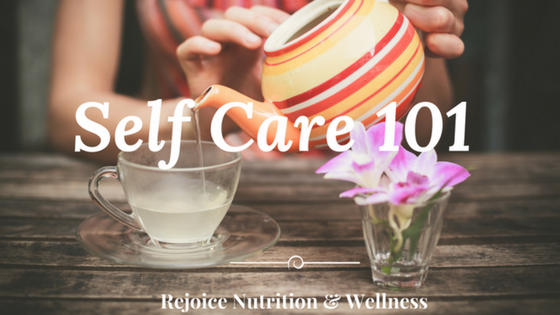Self-care means feeling healthy, relaxed, and equipped to take on the world. When you engage in any sort of voluntary activity that is aimed at promoting mental, emotional, or physical health, you are making a deliberate effort to take care of yourself. If you feel stressed out, have trouble organizing your time or the responsibilities of life seem to overwhelm you, it is time you may want to consider incorporating self-care into your life.
Benefits of Self-Care:
When the body is in good working condition, you will feel strong, get rid of nervous energy, and just allow yourself the freedom to enjoy the positives of life without dwelling on issues that stress you. While physical activity can be a good way of caring for yourself physically, it is not the only way of focusing on your positives. You could also take the time to engage in something you like such as reading a book or playing a game. The impact of engaging in such activities is that they distract your body and mind from the effects of any negative thoughts that could be stressing you out.
If you have a recurrent health condition, self-care strategies can be used to either cope with the symptoms or mitigate them. When you are busy with activities that you consider crucial to your survival, taking some time off to unwind may lead to feelings of guilt as it seems like a luxury. If you have been in a position where there is a tight deadline to be met, even an important activity such as eating may seem like a waste of time. That sort of mentality backfires; it is counterproductive. How can you expect to concentrate at work and feel re-energized every morning if you do not take the time to rest and visit what is important in your life.
Everybody has their share of stress; the crucial difference is the way we manage it. For a long time, people associated stress with depression and emotional instability but scientists have established a connection between certain types of stress levels and high performance. Self-care is what you need to keep your stress levels under control for optimal performance and health.
Here are 10 self-care practices of the mind, body, and spirit that will not only improve your perception of yourself but also enable you to cope better with the demands and pressures of life.
-
Move your body
You do not have to enroll at the gym to engage in meaningful & joyful movement. Activities, like walking, dancing, swimming, yoga, or anything that brings you joy! are a great way to start. The more you move, the more the body will manage to do in terms of physical activity and this will lead to the release of feel-good hormones which will make you happy.
-
Get enough sleep
Getting enough rest every day helps to regulate emotions and mood while sharpening the levels of alertness that are critical for us to get through our day. Developing a healthy night-time ritual such as drinking non-caffeinated herbal teas, using essential oils, Epson salt baths, disconnecting from electronics near bedtime, if you find this keeps you awake, and turning off any lights (including dimming your alarm clock light) before settling in.

-
Mindfulness in the Present Moment
Meditation, yoga, mental exercises, affirmations, journaling, energy healing, or prayer, whatever resonates with you, can be a great practice to adopt on a daily basis that promotes inward reflection and mental healing to achieve emotional balance.
-
Inward Reflection
Regularly identify aspects of your life that are positive so that you may establish a sense of well-being. Not focusing on the negative elements or things that drain your energy, but instead focusing on things that make you feel energetic and motivated, brings us to a place of inner calmness which is critical for a healthy body and mind.
-
Find time to spend alone
Make a date with yourself. Sometimes this may mean hiring a babysitter or trusted friend to watch the children. Or, if this is not possible, then carve out a little time each to be alone. You can use alone time to sleep, exercise, read, or take an Epson salt bath, provided you are doing something without interruptions. Silence and alone time is powerful tool for personal reflection & growth.
-
Respect your needs
 Treat yourself with high regard and let others know the value you place on yourself. This is where being mindful of establishing healthy boundaries is crucial. Somedays you have more to give others and some days you will have less, this is ok! This shifts based on the sleep we had the night before, our hormones, what is
Treat yourself with high regard and let others know the value you place on yourself. This is where being mindful of establishing healthy boundaries is crucial. Somedays you have more to give others and some days you will have less, this is ok! This shifts based on the sleep we had the night before, our hormones, what is
happening in our day-to-day life. Start by asking yourself first “what do I need today” and then insert boundaries and/or cross off some of those to-do list items you created for yourself so that you can carve out the time you need to respect what YOU need. This takes time & practice so be patient, flexible, and kind will you work on this. -
Fill your brain with positive thoughts
The brain magnifies thoughts. Entertain positive thoughts and you will always think the best about others and yourself. If you catch that “negative nancy” (our self-limiting internal narrative) creeping in, pause, acknowledge her, identify what is happening at that moment and why is she showing up now? Then consciously rewire your brain by flipping that negative to a positive. For example, You think,” I would love to write a blog!”. Then the negative voice pops in saying “you can’t write a blog! you don’t know how! what do you have to offer?! no one will read it!”. Pause- rewrite it to rewire the brain –> ” I don’t need to be perfect out the gate, everyone starts somewhere, even the “big” bloggers I follow all started where I am. I can do hard things and I have lots of great ideas to share. I will just start!”.
-
Help others
Be of help to those in need by offering your time, energy, and resources (when you have the capacity for it, remember tip #7 first). With the knowledge that you have made a positive contribution to the life of someone else, you will boost your own sense of self-worth. When we give back, we can refill our self-care reserves with immense gratitude for what we have that maybe we take for granted on day-to-day.
-
Organize
When our external environment is chaotic, so can our internal environment feels chaotic. Now, this does not mean that everything has to be “perfect” all the time. This means that when you feel a bit off course, lost, or overwhelmed it can be a powerful cognitive tool to simply organize or tidy things in your space. A CBT Therapist I worked closely with in the mental health field used to tell the staff that supported those with dual diagnoses and who struggled with mental illness that somedays the best supports we can give a person is to “clean their home”. Sometimes our mental health workers would object, “I am not a housecleaner!” but when a person is feeling depressed, anxious, or stuck having their external environment clean and tidy then actually allowed for us to do the work that we needed to do with people because they could “hear” us as they were more present in their internal world once the external space was “organized”. Try it and see if it helps you take care of yourself when you need it.
-
Mindful Eating
Take time to silence the external narratives, the diet culture, the “good & bad” food labels from the food
 industry, and take time to listen to what makes your body feel its best. What foods nourish your body and soul? Is there a recipe that always makes you happy when you eat it because it reminds you of a time, person, or place that elicits joyful feelings in you? The idea that all “emotional eating” is bad, is a diet culture narrative we must release. Food is an emotional experience, it’s not just about calories to survive! Emotional eating becomes a problem when it’s the only coping mechanism we have for unpleasant emotions which then can turn into disordered eating. Slow down, be curious, and be kind while you choose foods that make you feel good in your body, mind, and heart.
industry, and take time to listen to what makes your body feel its best. What foods nourish your body and soul? Is there a recipe that always makes you happy when you eat it because it reminds you of a time, person, or place that elicits joyful feelings in you? The idea that all “emotional eating” is bad, is a diet culture narrative we must release. Food is an emotional experience, it’s not just about calories to survive! Emotional eating becomes a problem when it’s the only coping mechanism we have for unpleasant emotions which then can turn into disordered eating. Slow down, be curious, and be kind while you choose foods that make you feel good in your body, mind, and heart.
The benefits of self-care really are endless, but you are definitely worth every minute you spend on yourself. Try whichever one resonates with you.
Which feels like something you can practice in your life?
Online resources
- http://ajmahari.ca/2015/04/self-care-10-keys-to-care-for-your-mind-body-and-spirit/
- http://thoughtcatalog.com/shahida-arabi/2014/07/10-ways-to-strengthen-your-self-care-and-self-love-practices/
- https://www.thedetoxdiva.com/self-care-rituals-for-vibrant-health/
- https://www.ted.com/playlists/299/the_importance_of_self_care
- http://au.reachout.com/what-is-self-care




